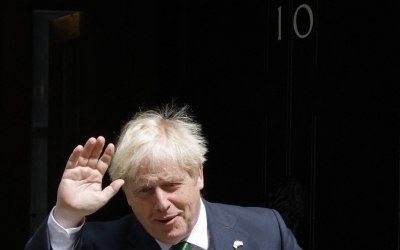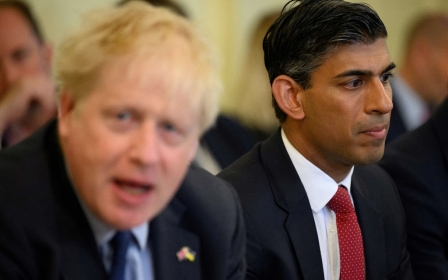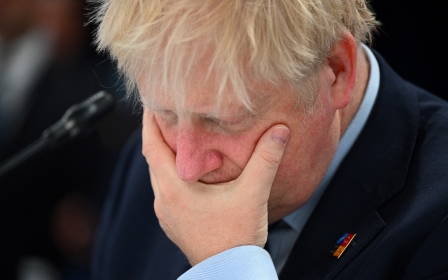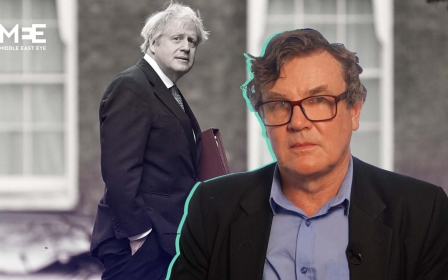Former UK Prime Minister Boris Johnson resigns as MP over 'Partygate' probe
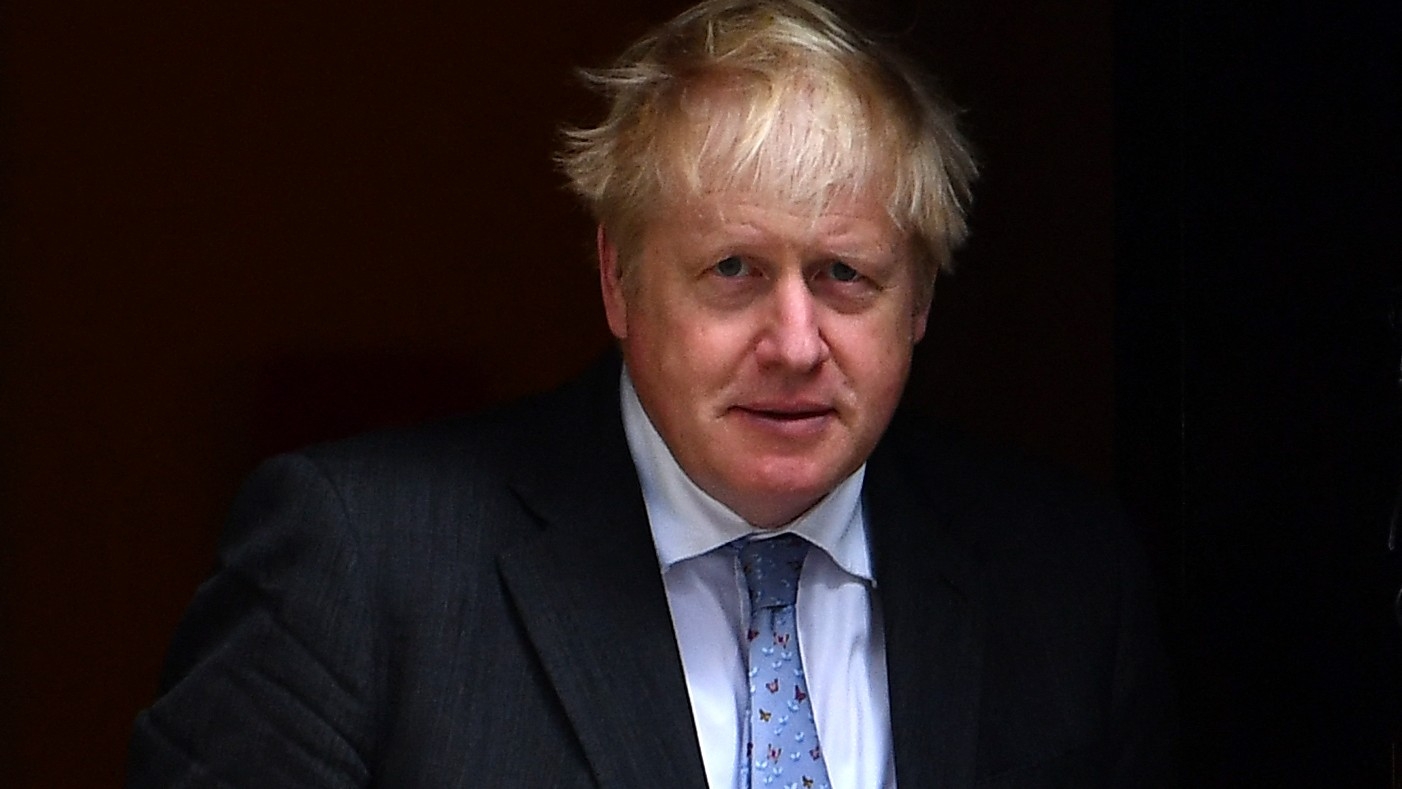
Britain's former Prime Minister Boris Johnson on Friday announced his resignation as an MP, accusing a parliamentary probe into the "Partygate" scandal for driving him out.
Johnson, 58, said he was stepping down with immediate effect, "triggering an immediate by-election" in his seat, which heaps political pressure on his successor, Rishi Sunak.
Johnson is currently being investigated by a parliamentary committee over whether he lied to MPs about lockdown-breaching parties at Downing Street.
In the statement, Johnson said he had received a letter from the committee "making it clear – much to my amazement – that they are determined to use the proceedings against me to drive me out of parliament.
"They have still not produced a shred of evidence that I knowingly or recklessly misled the Commons," he said.
New MEE newsletter: Jerusalem Dispatch
Sign up to get the latest insights and analysis on Israel-Palestine, alongside Turkey Unpacked and other MEE newsletters
Speaking to the committee in March, Johnson denied intentionally misleading parliament.
"I did not lie, and I believe that in their hearts the Committee know it," Johnson said in the statement on Friday.
"They know perfectly well that when I spoke in the Commons, I was saying what I believed sincerely to be true and what I had been briefed to say, like any other minister," he added.
Johnson said he "corrected the record as soon as possible".
He accused the committee of being a "kangaroo court" and said that its "purpose from the beginning has been to find me guilty, regardless of the facts”.
Political scene
Johnson has loomed large over the UK political scene. During his tenure as prime minister, he oversaw some of the biggest crises to face the country in recent years, primarily the Covid-19 pandemic and the post-Brexit process of decoupling the UK from the European Union.
His last year in office on the foreign policy front was dominated by the war in Ukraine. He positioned himself as a staunch advocate of Kyiv, but he also had some notable Middle East moments.
Johnson faced criticism from British-Iranian aid worker Nazanin Zaghari-Ratcliffe after her release from Iran for responding too slowly to her imprisonment. His government later announced that it had paid a debt owed to Iran dating back to the 1979 Islamic Revolution on the same day Zaghari-Ratcliffe returned to the UK.
While a series of ethics scandals led to Johnson’s downfall as prime minister and now exit from parliament, he also had some Middle East gaffes.
In 2016, Johnson, who often references his Ottoman and Turkish heritage, published a poem about Turkish President Recep Tayyip Erdogan, in which he described the Turkish leader as a "wankerer from Ankara" and implied he had sex with goats.
In one of his last foreign engagements before resigning as prime minister, Erdogan jokingly addressed Johnson on video during a Nato summit, saying: "This one is a disgrace to us", apparently in reference to his Turkish heritage. Johnson responded with "very nice, very nice" in Turkish.
Middle East Eye delivers independent and unrivalled coverage and analysis of the Middle East, North Africa and beyond. To learn more about republishing this content and the associated fees, please fill out this form. More about MEE can be found here.


